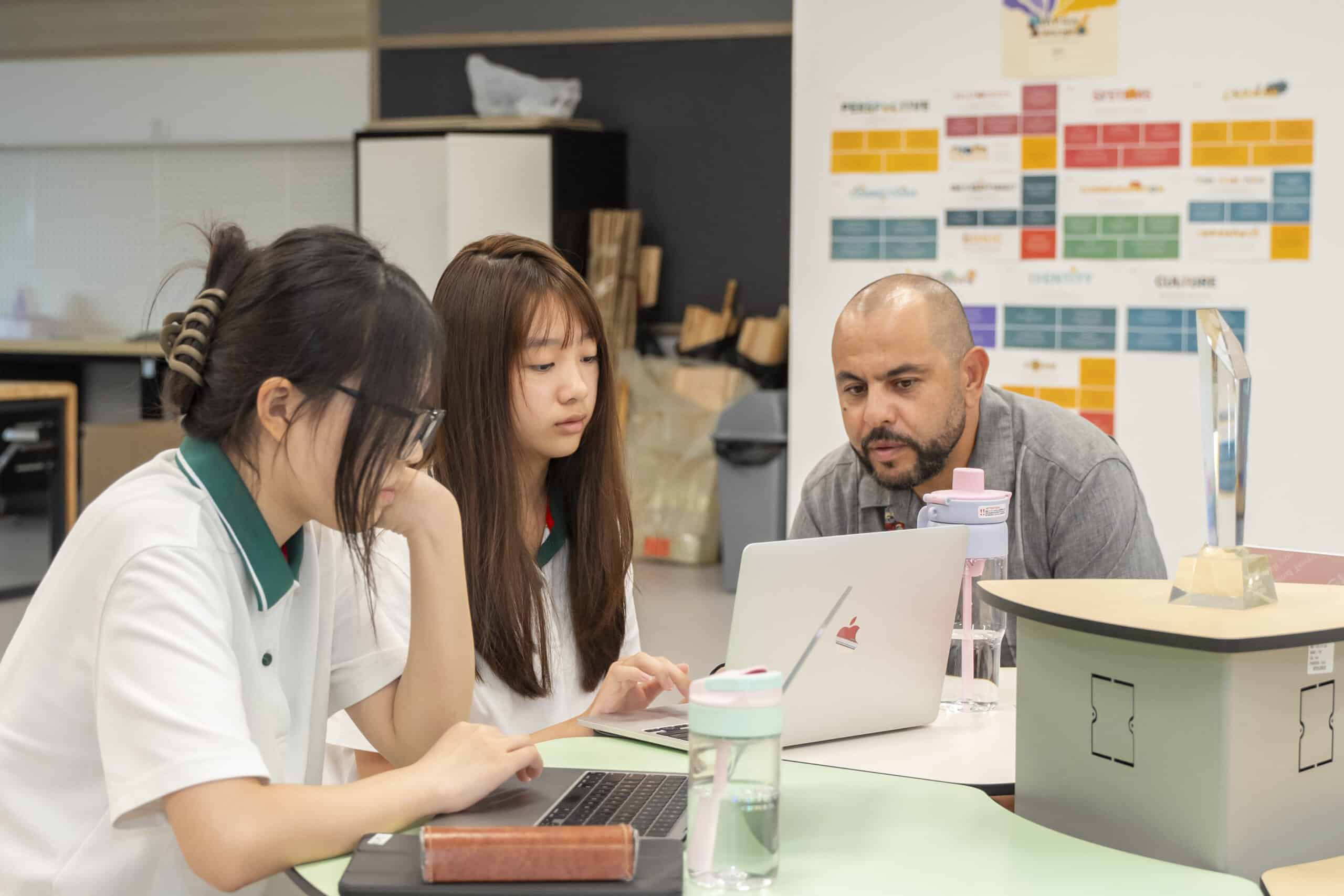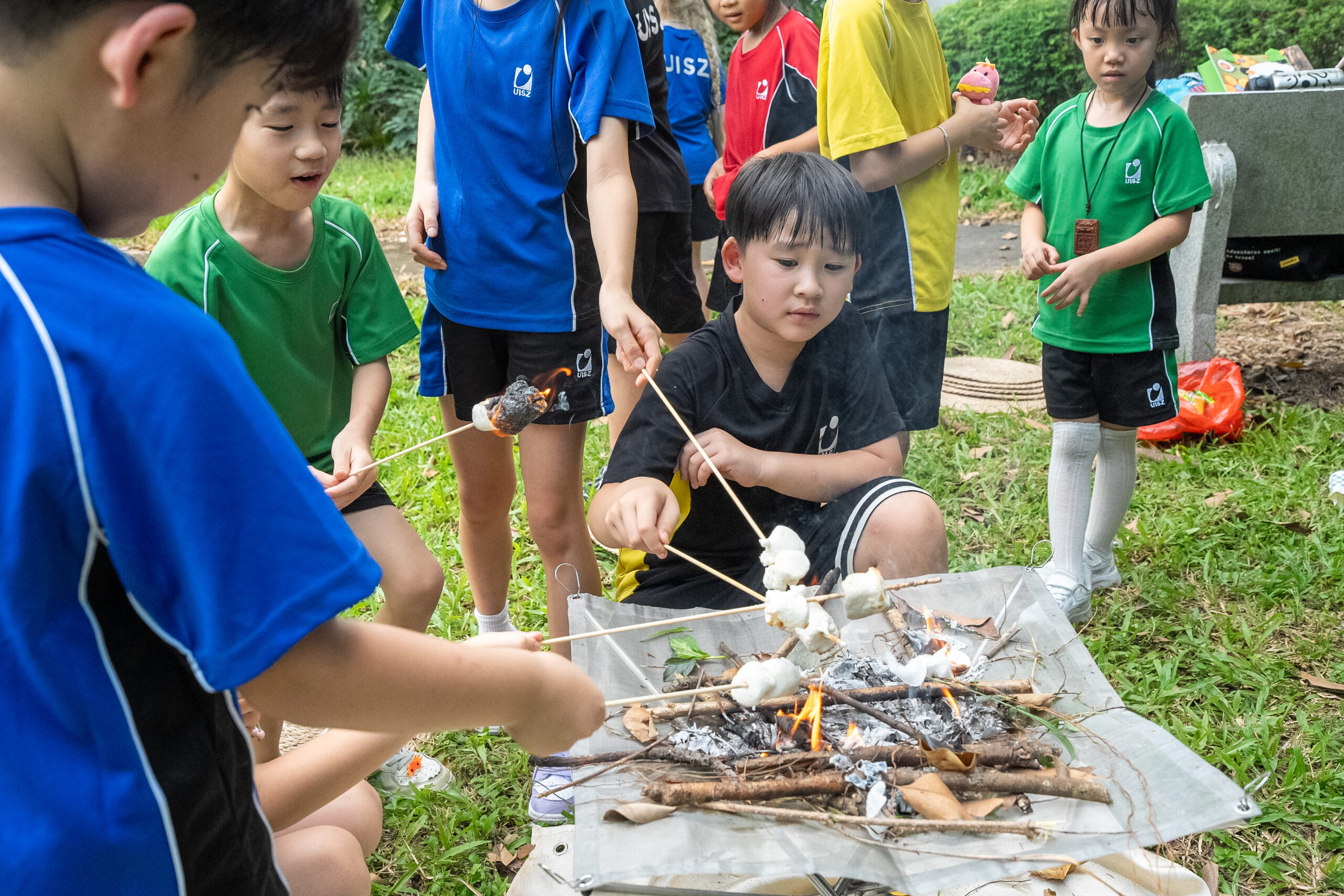In the classroom, we aim to create a safe and pleasant learning environment for both student and teacher. Our students experience a range of different teaching styles, from the more traditional lecture style presentations and rote learning to the more progressive models of project-based learning, online interactive platforms and the flipped classroom. At UISZ, we feel that a balance of traditional and progressive approaches, support us to reach our aim of educating the whole person.
Student Experiences
Classroom Experiences

Extra-curricular Activities

At UISZ, we understand that learning is a lifelong process that happens inside and outside of the classroom walls. Extracurricular activities (or ECAs) extend beyond academic learning and support students’ social, emotional, physical, cognitive, and language development. We are committed to developing the whole child.
ECAs are offered after school, Monday through Thursday, and rotate regularly to ensure that students can try different activities and learn a range of skills and competencies. Examples of ECAs include Forest School, skateboarding, cycling, hip-hop dance, watercolor painting, origami, basketball, volleyball, badminton, Lego design, and coding.
House System
UISZ is a close-knit community where we help and support each other to pursue our goals. The House System helps to build and sustain community across our school and residential program. UISZ includes four houses: Water House, Wind House, Earth House, and Fire House. All members of our community, from kindergarten through grade 12, are part of a house team. House sporting events, reading groups, and celebrations are exciting events for students and the whole community!
Student Leadership
The student leadership runs the Houses as a Boy’s House Captain and a Girl’s House Captain. These Captains organise their House for sports competitions and community and service projects and oversee the welfare of their peers daily. Together with the School Captains, the House Captains form the Student Council, which advises the school’s Senior Lead Team and advocates on behalf of student concerns. The weekly whole-school assemblies are run and managed by the Student Council leadership. This approach empowers students to have a stake in their school, not as passive subjects of adult administration but as active leaders involved in the processes that directly affect them. School rules are not dictated from above but result from a collaborative process involving the students, which is then implemented and enforced by the students. The result is a school wherein ‘community‘ is not a buzzword for a mission statement but an actual way of life that envelops the entire campus and its constituents.
The Student Council is comprised of two School Captains and four House Captains. In addition, five students from years 7 to 11 are elected to form the Executive group and take on positions of President, Vice President, Treasurer, Secretary, and Publicity Officer. Although only one President will be elected, depending on the Executive group for that particular year, any of the other positions may be filled by two people, e.g., 2 Vice Presidents. The functions of the Student Council are:
-
- to serve as a vehicle by which students can discuss and present issues to the School Administration
-
- to organise events which serve as social activities and raise money
-
- to decide which charities (local and overseas) will receive the raised funds
-
- to organise special events (e.g. Winter Ball), which raised funds will subsidise
-
- to host school assemblies
-
- to disseminate Student Council information via school advertisements and the School website.
Student involvement in leadership is encouraged, and the school provides many avenues for this, including whole-school leadership positions, such as School Captain, Sports Captain, Arts Captain, Service Captain and House Captain through the after-school and ACAMIS, cultural, Model United Nations (MUN) and sporting programmes.




